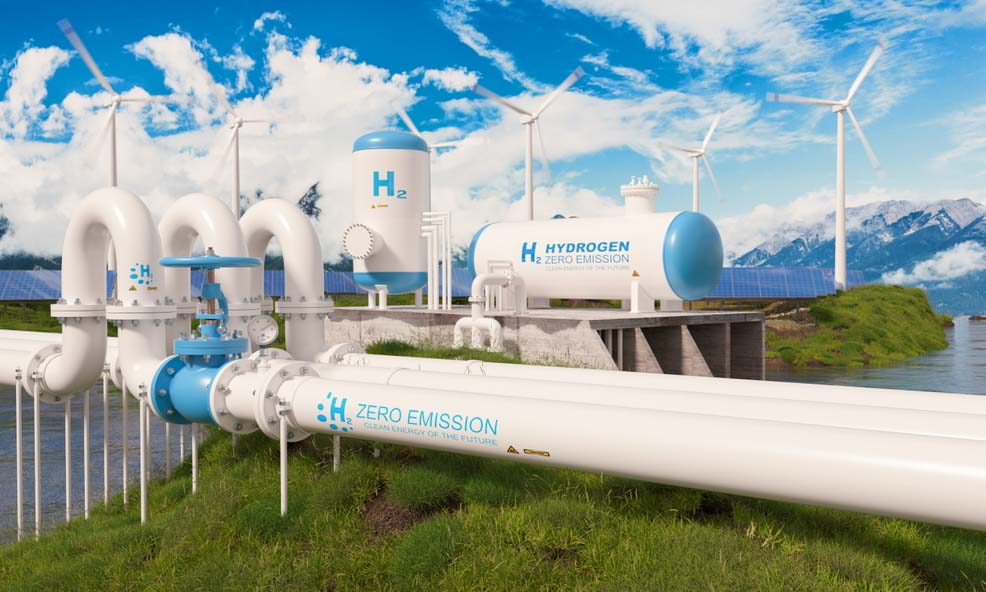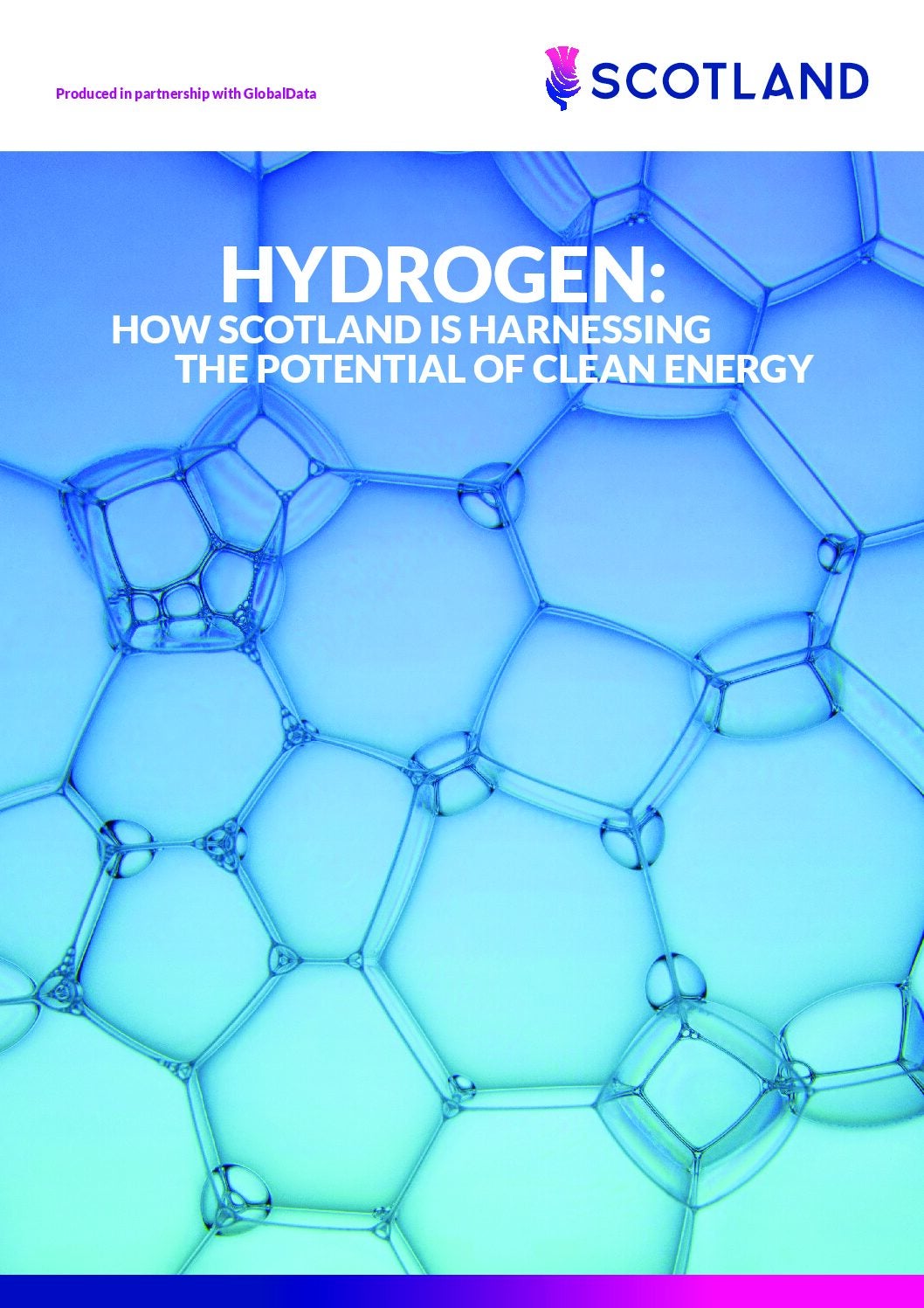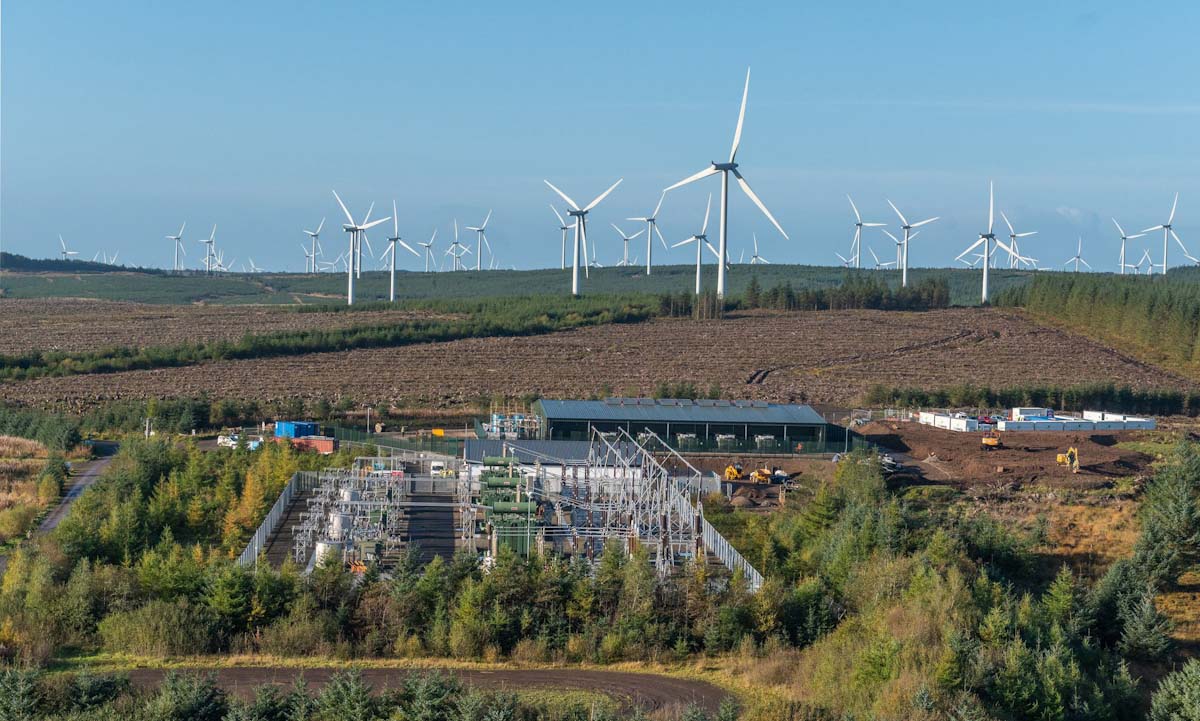
The hydrogen supply chain is crucial to the success of the growing low-carbon sector, and key challenges to its development are being overcome in Scotland.
While the energy and ingenuity of start-ups can be vital to driving innovation in the sector, scaling up operations to a commercial level without sufficient market revenue can be a step too far. In Scotland, established companies with the crucial expertise and capital are diversifying into the hydrogen space to provide the components and services for the emerging industry. Notably, companies from the oil and gas industry are adapting their services and solutions to support the development of the hydrogen supply chain in Scotland.
Due to the bulk of revenue generated by operations of businesses in other sectors, it also helps to derisk the hydrogen supply chain, where company survival does not rest solely on the emerging market.
This is especially important given the challenges the low-carbon hydrogen industry has experienced in recent years, despite a strong increase in project announcements.
“A consolidation of pipeline projects has taken place, with the low-carbon hydrogen capacity that is set to be operational in 2030 decreasing by 10% over the course of the past year. This decrease has largely been driven by delays or cancellations of mega-projects,” explains Francesca Gregory, senior energy transition analyst at GlobalData.
Gregory highlights that high levels of project activity are still taking place, albeit on a smaller scale. According to GlobalData figures, the number of upcoming projects worldwide across the zero kilotons per annum (ktpa) to 5ktpa category and 25ktpa-175ktpa category increased by 16% and 13%, respectively, in the last year.
“Many countries continue to maintain or grow their bank of hydrogen projects,” says Gregory. “Signalling global opportunities despite a decrease in overall global capacity.”
“Although the industry is currently falling below projections in most economies, this nascent market is still making important steps towards achieving commercial scale,” she adds. “There is significant potential for the industry to still meet its objectives, providing there are necessary demand-side incentives, streamlined project development, and consistent policy and legal frameworks.”
Developing hydrogen standards and the supply chain
As industrial regulations and standards for hydrogen are still developing, this creates a significant challenge for building the market and supply chain. These issues are being addressed in Scotland. One Scottish company leading the way in the hydrogen supply chain and standards is Stewart-Buchanan Gauges. The company was established more than 150 years ago and serves a diverse mix of industries, including oil and gas, renewables, food and drink, military, defence, aerospace, and now hydrogen.
Based in Kilsyth, approximately 15 miles from Glasgow, Stewart-Buchanan Gauges has a global footprint and supplies more than 50 countries with a range of products, including valves, gauges, and thermometers. Flexibility is a key aspect of the company’s services, manufacturing an estimated 32,000 variations of the listed product types. “The nice thing about this business is we can bespoke-manufacture, whereas some of the larger competition can’t or don’t do that,” says Ian Valentine, managing director of Stewart-Buchanan Group.
With the energy transition underway and new opportunities emerging, Stewart-Buchanan Gauges is applying its expertise to the developing hydrogen sector. As hydrogen standards and regulations are still developing, the company has developed a solution on a recent project.
The company worked with Glasgow Caledonian University (GCU) to test valves based on Regulation No. 134 of the Economic Commission for Europe of the United Nations (UN/ECE). Although this regulation was written for hydrogen-fuelled vehicles, it provided a useful framework that could be applied to research and also takes commercialisation into account.
“Our opportunity is to become the first Scottish company, potentially in the world, to actually be officially certified to manufacture hydrogen-based valves,” adds Valentine.
Producing industrial hydrogen valves in Scotland
Over the two-week project, Stewart-Buchanan Gauges worked with a team led by Dr Mahmood Anwar, deputy head of the department of engineering at GCU. Dr Anwar previously worked as a research scientist for Hitachi CFP PTE in Singapore and has extensive experience in the oil and gas industry.
Another partner involved in the project was Manchester-based International Gas Detectors, which has been providing hydrogen detection services for more than 100 years. The company conducted independent monitoring in the testing phase.
Funded by Scottish Enterprise, the project involved testing the embrittlement of the materials and leakage rates of the hydrogen valves.
Valves were placed in a tank of water, with 100% pure hydrogen passed through them. Equipment was carefully monitored to check for leaks. The criteria for a pass under the UN regulations is 15 bubbles of water in a minute. However, the team reported a zero-bubble count during the tests.
“Whilst these standards are still being produced, the fact that we know that we can meet the [UN/ECE] standards is fantastic,” says Valentine. “The guidance offered by Dr Anwar at GCU cannot be underestimated. He was fantastic support to us,” he adds.
With decades of industry experience, Valentine clearly sees market opportunities available for the hydrogen supply chain in Scotland.
“My aim is that companies can come to us that are new to the hydrogen sector, for example, and say they need a new product manufactured – a new valve, connector, or gauge,” he says. “Whatever it is, we can design and manufacture it. We’ve got the capability of doing high-volume manufacture as well.”
“I’m happy to help hydrogen innovation companies with manufacturing bits or helping them with design. That’s how I see our future going forward,” adds Valentine.
Companies in Scotland’s hydrogen value chain
Many other established companies in Scotland are also applying their experience gained in other industries to support the development of the green and low-carbon hydrogen sector. Green hydrogen is produced by using electrolysis to split water into its chemical elements. While low-carbon hydrogen production can be similar to traditional processes, with the addition of carbon capture.
Aberdeen is home to a diverse range of companies now serving the emerging hydrogen industry. These include Hydrasun, which has a background in providing integrated fluid transfer systems and power and control solutions. The engineering company has been involved in more than 40 hydrogen projects worldwide and is a key contributor to a significant project closer to home. The £40m Aberdeen Hydrogen Hub is a joint venture between BP and Aberdeen City Council. The hub will feature a refuelling station with on-site green hydrogen production, storage and distribution capabilities.
Nearby, Norco operates the Aberdeen City Hydrogen Energy Storage (ACHES) facility, which is supplying green hydrogen to vehicles and supporting trials of hydrogen-powered generators. Norco was established more than 30 years ago as a provider of battery rentals services, moving into systems for uninterruptible power supply in 2005 and, more recently, hydrogen – taking over the running of ACHES in 2017.
International companies are also important in Scotland’s energy industry. Swagelock is a global provider of industrial fluid system components and engineering services for a range of sectors. The company was founded in the US and has offices all around the world, including in Aberdeen. Swagelock now offers solutions for a range of hydrogen processes, from electrolysis and containment to distribution. The development of Swagelok’s hydrogen products involves material scientists working alongside engineers to determine the optimum materials for components.
Penspen is another global company with offices in Aberdeen. With its headquarters in London, the company is an international provider of energy consultancy services, including for every aspect of the hydrogen value chain.
Outside of Aberdeen, more companies are developing hydrogen niches in Scotland. Founded in 1878, Cochran is an established Scottish provider of industrial boilers and related solutions. Based in the Scottish Borders, the company has a long history of providing fossil fuel boilers to distilleries around Scotland and is now developing hydrogen-ready models for spirit makers seeking to decarbonise.
The future hydrogen economy in Scotland
Collaboration is essential to overcoming hydrogen supply chain challenges in Scotland. The country’s world-class universities regularly collaborate with industry partners to further innovations and understanding. The project between Stewart-Buchanan Gauges and GCU is evidence of the possible mutual benefits through such partnerships.
Alongside the development of new industry solutions, the expertise available in Scotland from established companies provides crucial opportunities to develop the next generation of engineering talent. Development of skills and talent will also help create jobs and keep them in Scotland, with expertise in hydrogen that can be exported globally alongside components.
“The aim of this company is to make products and retain jobs in Scotland. That’s what we’re about, that’s where we’re aiming. The transition from oil and gas into renewables and into the hydrogen sector is something that I see as a massive opportunity for us,” says Valentine.
“Scotland’s expertise in design and engineering and oil and gas is very easily transferable into the hydrogen market,” he adds. “The hydrogen market for Scotland can exceed the needs of Scottish people as a ready-exportable power source.”
To learn more about the growing hydrogen economy in Scotland, download the document below.




